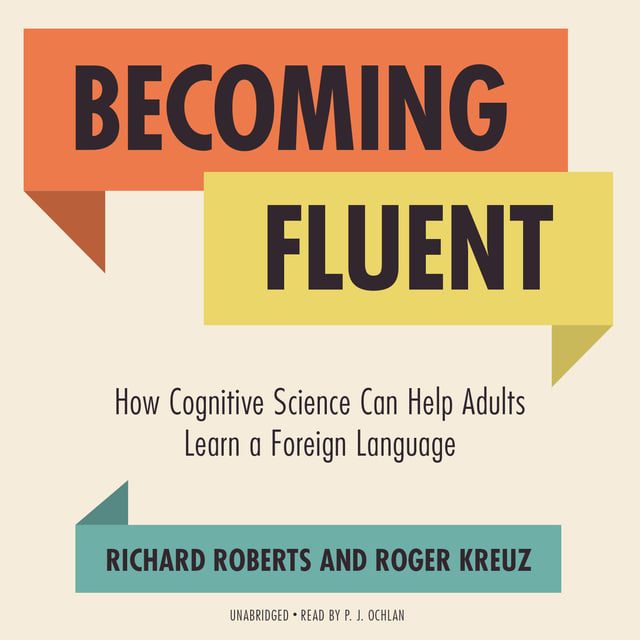If people knew how hard I had to work to gain my mastery, it wouldn’t seem wonderful at all.—Michelangelo
In Becoming Fluent: How Cognitive Science Can Help Adults Learn a Foreign Language, American Foreign Service Officer Richard Roberts and Associate Dean of Graduate Studies in the College of Arts and Sciences and Professor of Psychology at the University of Memphis Roger Kreuz argue that adults can master a foreign language if they bring to bear the skills and knowledge they have honed over a lifetime. The authors draw on insights from psychology and cognitive science to show that Adults shouldn’t try to learn as children do; they should learn like adults.
“Adulthood is the perfect time to expand one’s horizons through the study of other languages. All too often, however, the pleasure that should be inherent in learning to speak another language is marred by negative thoughts and experiences—past and present, real and perceived.”
The authors draw research from cognitive science, as well as their experiences teaching, conducting research, learning languages, and working and travelling abroad.
As an adult language learner, you have the gift of insight—something younger learners lack. Don’t be afraid to take advantage of it.
